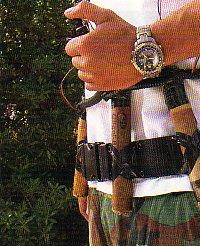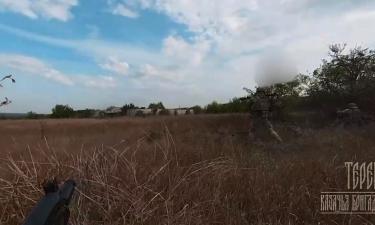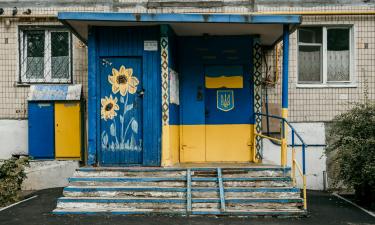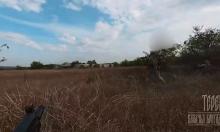Suicide bomber murders at least 15 at recruiting center, 21 more bodies found
A suicide bomber attacked a joint U.S.-Iraqi military base in northern Iraq in Monday, killing at least 15 people and wounding as many as 30, the Iraqi military said. At least 21 more corpses were found many with nooses around their neck and mortar and bomb attacks killed at least four.

The nationalities of the victims in the suicide bombing about 18 miles east of the ancient city of Tal Afar were not immediately known. The bomber struck shortly after noon at an Iraqi army recruiting center in front of the base.
President Bush singled out Tal Afar in a recent speech as a success story for American and Iraqi forces in the drive to quell the insurgency.
Iraqi army Lt. Akram Eid told The Associated Press that many of the injured were taken to the Sykes U.S. Army base on the outskirts of Tal Afar, which is about 40 miles west of Mosul , Iraq 's third largest city.
The U.S. military in Baghdad said it was checking the report.
Details of a joint U.S.-Iraqi Special Operations attack in northeast Baghdad late Sunday continued to filter out. The military, in an updated reported, said the joint operation "killed 16 insurgents and wounded three others during a house-to-house search on an objective with multiple structures.
"They also detained 18 other individuals, discovered a significant weapons cache and secured the release of an Iraqi being held hostage," the statement said.
Associated Press reporters who visited the scene Monday morning said the site of the attack was clearly a neighborhood Shiite mosque complex, although the American military insisted, "no mosques were entered or damaged during this operation."
Baghdad police said at least 22 were killed in the attack after gunmen fired on the joint U.S.-Iraqi patrol from a position in the neighborhood but not from the mosque. Police and representatives of radical Shiite cleric Muqtada al-Sadr, who holds great sway among poor Shiites in the eastern section of Baghdad , said all those killed were in the complex for evening prayers and none was a gunmen.
Associated Press videotape shot Monday showed crumbling walls and disarray in a compound used as a gathering place for prayer. It was filled with religious posters and strung with banners denoucing the attack. Mourners were gathering for funerals for the dead.
Sunday night video showed a tangle of dead male bodies with gunshot wounds on the floor of what was said by the cameraman to be the imam's living quarters, attached to mosque itself. The compound, once used by Saddam Hussein's government, consists of a political party office, the mosque and quarters for the mosque imam.
The tape showed 5.56 mm shell casings scattered about the floor. U.S. forces use that caliber ammunition. A grieving man in white Arab robes stepped among the bodies strewn across the blood-smeared floor.
In an audiotape broadcast Monday, Saddam Hussein's chief deputy, who has eluded capture since the U.S.-led invasion of Iraq three years ago, purportedly called for Arab leaders to back Iraq 's Sunni-backed insurgency.
The tape, which Al-Jazeera television said was made by Izzat Ibrahim al-Douri, appeared to be an address to the Arab League summit in Khartoum , Sudan , this week.
The voice on the tape said Iraq 's Sunni-led insurgency was "the sole legitimate representative of the Iraqi people." It was impossible to determine the tape's authenticity.
Al-Douri was sixth on the U.S. deck of cards that enumerated the most-wanted members of Saddam's regime. He had been Revolutionary Command Council vice chairman and a longtime Saddam confidant.
Al-Douri, who is at least 62, was among Saddam's oldest and closest associates.
In the capital, a bomb exploded in a bus headed for the Sadr City slum of east Baghdad , killing two passengers and wounding at least four others, police Col. Hassan Jaloob said. The bomb had been left in a bag, he said.
A car bomb at the entrance to Sadr City also exploded, though reports on casualties were not immediately available.
The latest violence came a day after 69 people were reported killed in one of the bloodiest 24-hour periods in weeks. Most of the dead appeared to be victims of the shadowy Sunni-Shiite score-settling that has torn at the fabric of Iraq since Feb. 22 when a Shiite shrine was blown apart in Samarra , north of Baghdad .
Thirty victims of the continuing sectarian slaughter _ most of them beheaded _ were found dumped on a village road north of Baghdad . At least 16 other Iraqis were killed in a U.S.-backed raid in the capital.
Among the 21 bodies reported Monday, nine were found in west Baghdad that were handcuffed, blindfolded and with ropes around their necks, police Lt. Akeel Fadhil said. Three bodies, of two men and a woman shot in the head, were found late Sunday in east Baghdad , police said.
At a farm east of Baghdad , the bodies of nine men kidnapped a day earlier were discovered by relatives, police said. All had been shot in the head.
Mortar rounds slammed into streets in east Baghdad 's Zaiyona district and the central area of Karradah, killing one bystander and wounding at least five others, police said. Another mortar hit a home in Baladiyat in the east, but no casualties were reported.
Two separate roadside bombs targeting police patrols wounded a total of two policemen and three civilians in west and southwest Baghdad , police said. Another bomb targeting a U.S. convoy exploded in Zaiyona, but there was no word on casualties, police said.
Much of the recent killing in Iraq is seen as the work of Shiite militias or death squads that have infiltrated or are tolerated by Iraqi police under the control of the Shiite-dominated Interior Ministry.
In an apparent effort to clamp down on police wrongdoing, American troops raided an Interior Ministry building and briefly detained about 10 Iraqi policemen after discovering 17 Sudanese prisoners in the facility, Iraqi authorities reported.
The report was reminiscent of a similar U.S. raid last November that found detainees apparently tortured. That discovery set off a round of international demands for investigations and reform of Iraqi police practices to ensure observance of human rights.
In this case the Americans quickly determined the Sudanese were held legitimately and had not been abused, said Maj. Gen. Ali Ghalib, a deputy interior minister.
The U.S. military command here had no immediate comment.
The raid in Baghdad came a day after U.S. Ambassador Zalmay Khalilzad spoke out on the need to cap the sectarian, militia-inspired killing, saying "More Iraqis are dying today from the militia violence than from the terrorists." He did not say which militias he meant nor did he define who the terrorists were.
The two major militia forces in the country are Shiite organizations the Mahdi Army of al-Sadr and the Badr Brigades, the armed wing of the Supreme Council for the Islamic Revolution in Iraq . Both have ties with Iran .
Following the mosque raid Sunday night, Prime Minister Ibrahim al-Jaafari, a Shiite, expressed concern and telephoned Iraqi military leaders and U.S. Gen. George Casey to "discuss the situation," said spokesman Abdul Rezzaq Al-Kadhimi.
He said the prime minister promised government compensation for families of those killed in the raid and called for Iraqis to be patient until an investigation was completed, reports the AP.
D.M.
Subscribe to Pravda.Ru Telegram channel, Facebook, RSS!





